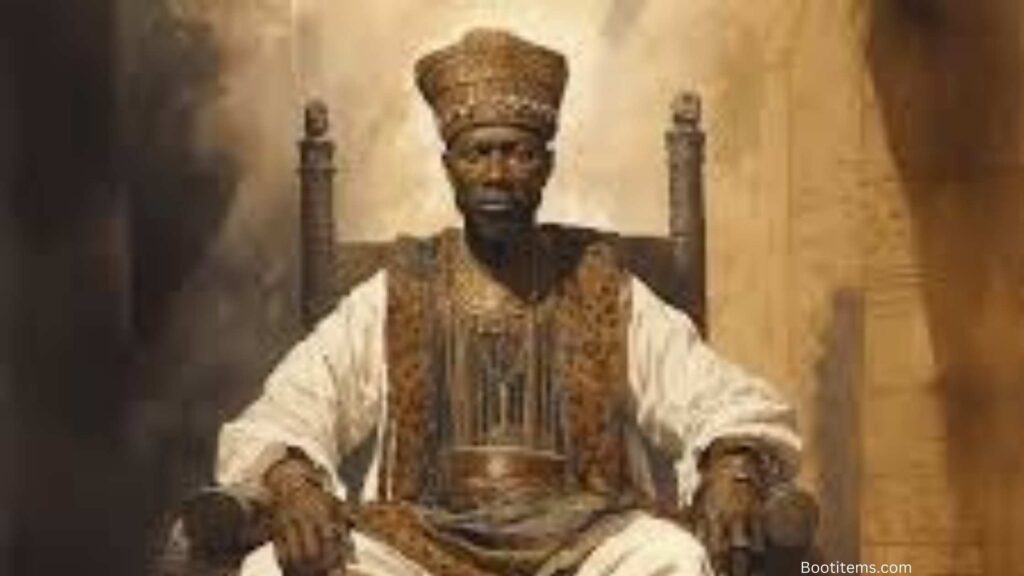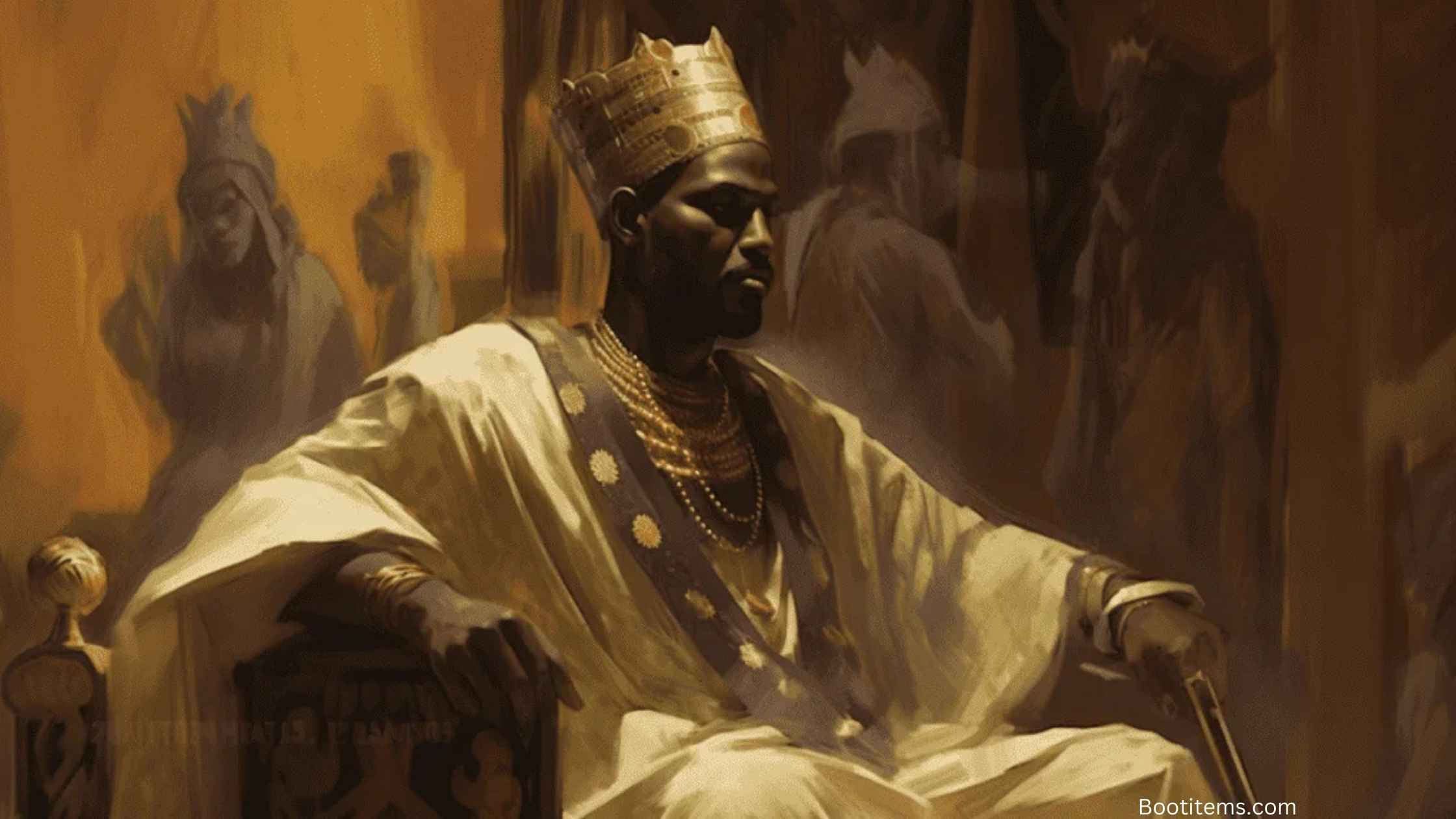Mari Djata II: Mali Empire’s Controversial Legacy & Decline
The story of Mari Djata II begins with his noble lineage as the grandson of the legendary Mansa Musa, whose pilgrimage to Mecca had established Mali as one of the wealthiest empires in world history. Born into the royal Keita dynasty, Mari Djata II spent his early years in the shadow of political intrigue and power struggles that characterized the Mali Empire’s succession system.
During his youth, he lived in exile in Kanburni, carefully observing the political landscape while his great-uncle Mansa Suleyman held power. This period of exile shaped his understanding of power dynamics and likely influenced his later approach to governance. The death of Mansa Qanba, who ruled for merely nine months, created a power vacuum that Mari Djata II skillfully exploited to claim the throne in 1360.
Administrative Structure and Governance
Upon assuming power, Mari Djata II inherited an empire with sophisticated administrative structures established by his predecessors. The Mali Empire operated through a complex system of provinces and tributary states, each governed by appointed officials who answered directly to the Mansa.
The imperial court maintained several key positions:
- The Gbara (Great Assembly) served as an advisory council
- The Kankoro-sigui managed the palace administration
- The Santigui oversaw ritual sacrifices and religious matters
- The Farim-dugu supervised agricultural production
Mari Djata II’s approach to governance marked a significant departure from the careful balance maintained by previous rulers. He centralized power more aggressively, often bypassing traditional checks and balances that had helped maintain stability in the empire.
Economic Policies and Their Impact
The economic policies implemented during Mari Djata II’s reign had far-reaching consequences for the Mali Empire. His administration was characterized by:
Financial Mismanagement
The most notorious example of his financial recklessness was the sale of a massive gold boulder, weighing twenty qintars, at a fraction of its actual value. This decision not only depleted the imperial treasury but also damaged Mali’s reputation in international trade networks.
Trade Relations
Despite his financial mismanagement, Mari Djata II attempted to maintain Mali’s traditional trade relationships. He continued the empire’s diplomatic exchanges with North Africa, particularly Morocco, sending elaborate gifts including exotic animals to the Marinid sultan in Fez.
Taxation and Revenue
His reign saw increasingly oppressive taxation policies as he attempted to maintain the lavish lifestyle of the court despite dwindling resources. This led to growing discontent among both nobles and commoners.
Military Campaigns and Territorial Control
The military aspects of Mari Djata II’s reign reflected both continuity and decline in Mali’s military prowess:
Strategic Challenges
- The empire faced increasing pressure from neighboring states
- Control over distant provinces became increasingly tenuous
- Military resources were often misallocated or squandered
Territorial Losses
The most significant territorial loss came near the end of his reign, with the Songhai settlement of Gao asserting its independence. This loss proved particularly damaging as Gao controlled crucial trade routes along the Niger River.
Cultural and Social Developments
Despite the political and economic challenges, Mali’s cultural life continued to evolve during Mari Djata II’s reign:
Religious Policy
Islam remained the official religion of the court, though traditional beliefs continued to play an important role in society. Mari Djata II maintained the dual religious system that had characterized Mali since its founding.
Arts and Literature
The oral traditions and musical arts continued to flourish, with griots maintaining their crucial role in preserving and transmitting historical knowledge and cultural values.
The Final Years
The last phase of Mari Djata II’s reign was marked by personal tragedy and political crisis:
Health Crisis
In 1372, he contracted a severe sleeping sickness that gradually diminished his capacity to rule. This illness created a power vacuum that various court factions attempted to fill.
Power Transition
During his final two years, actual power increasingly shifted to his ministers, creating a precedent for weak central authority that would plague his successors.

Legacy and Historical Impact
Mari Djata II’s reign left an indelible mark on Mali’s history:
Institutional Decline
- Weakening of central authority
- Erosion of administrative efficiency
- Deterioration of financial stability
Long-term Consequences
His reign marked the beginning of Mali’s gradual decline, initiating a period known as the “time of troubles” that would continue under his successors.
People Also Ask
- What were the major achievements of Mari Djata II?
Despite his controversial reign, he maintained diplomatic relations with North African states and preserved Mali’s basic administrative structure. - How did Mari Djata II’s policies affect Mali’s economy?
His financial mismanagement and excessive spending severely weakened the empire’s economic foundation and depleted its treasury. - What role did religion play during Mari Djata II’s reign?
He maintained Mali’s traditional dual religious system, balancing Islamic court practices with indigenous beliefs. - How did Mari Djata II’s illness affect Mali’s governance?
His sleeping sickness in 1372 created a power vacuum, leading to increased influence of court officials and political instability. - What territories were lost during Mari Djata II’s reign?
The most significant loss was the Songhai settlement of Gao, which gained independence near the end of his reign. - How did Mari Djata II’s reign affect Mali’s international relations?
While he maintained diplomatic ties with Morocco and other states, his financial decisions damaged Mali’s reputation as a wealthy trading partner. - What was the state of Mali’s military during his reign?
The military experienced gradual decline, struggling to maintain control over distant provinces and facing increased pressure from neighboring states. - How did Mari Djata II’s governance style differ from his predecessors?
He adopted a more centralized and authoritarian approach, often bypassing traditional checks and balances. - What cultural developments occurred during his reign?
Despite political challenges, oral traditions and musical arts continued to flourish, with griots maintaining their important cultural role. - What immediate changes occurred after Mari Djata II’s death?
His son Musa II succeeded him, but real power shifted to court officials, particularly the kankoro-sigui Mari Djata.

Samantha Yates is a creative writer and journalist with expertise in content creation and editing. She holds an MA in Creative Writing and brings professional experience from Lionbridge, where she developed engaging content for leading technology companies







